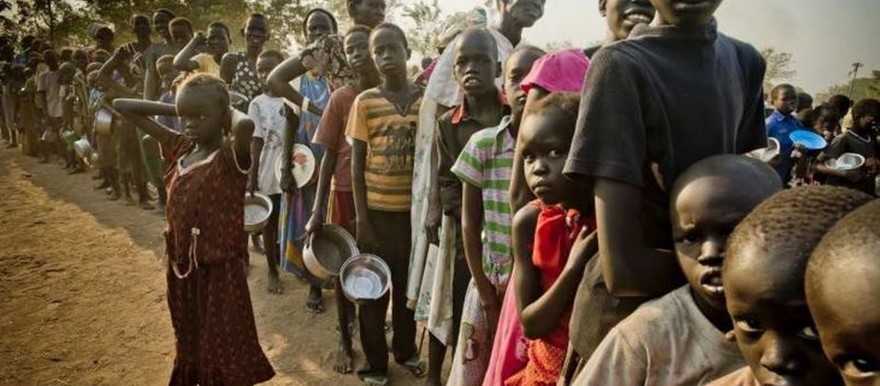This week the world observed International Day of Peace under the theme "Recovering better for an equitable and sustainable world'. The UN General Assembly declared this as a day devoted to strengthening the ideals of peace through observing 24 hours of non-violence and ceasefire.
Since achieving independence in 2011, South Sudan has been battling chronic economic, political and humanitarian crises and is struggling to emerge from the aftermath of a five-year civil war that left nearly 400,000 people dead and more than four million displaced.
Although a 2018 ceasefire and the power-sharing deal between President Salva Kiir and First Vice President Riek Machar still largely holds, it is being severely tested, with little progress in its implementation.
Speaking to South Sudanese in South Sudan and across borders, in the backdrop of economic, political, security, and humanitarian crises, Radio Tamazuj has heard a resounding 'we want peace' message echoed across the population. But what does this peace mean to them?
For Thon Mom, peace is the silencing of the guns, unification of forces, civil disarmament, and reintegration of former forces into society.
"The war must be stopped, the conflicting forces must be unified, weapons must be collected, and the forces must be reintegrated into public life again for the citizens to enjoy permanent movement throughout the country," he said.
Sunday Rial believes peace means the presence of security and stability which allows all internally displaced people and refugees to return to their homes and rebuild their livelihoods.
"Now most of the citizens have migrated to Juba. It is necessary to work seriously for peace so citizens can return home and engage in agriculture, grazing, and others, for development and stability throughout the country," Rial said. “The most affected groups from the conflict are women who give birth to children in unsuitable areas far from home, all of which are considered suffering for the citizens due to instability.”
Another citizen William Deng said South Sudanese are tired of wars, cattle theft, and communal violence, which he says impedes stability.
"South Sudanese citizens want a real peace that improves life and prosperity and achieves stability, peace, reconciliation, and development," he said.
William added that South Sudanese citizens also want to see successful government institutions capable of supporting the peacebuilding processes in the country.
For Nyadak Thon, peace should be felt by all South Sudanese, not just those who are closest to power in Juba, the capital city through the provision of services to all.
"The government of President Kiir and his deputies must work to improve the suffering of the people. Peace should not only be on paper, but real peace that is reflected in every home in South Sudan," Nyadak explained.
This week, the Troika (United States, United Kingdom, and Norway) accused the South Sudan government of unjustified arbitrary arrests of civil society actors and restrictions on freedoms of expression and assembly. It reiterated calls to ensure the rights of freedom of expression, assembly, and peaceful protests are upheld as stipulated in the country's Transitional Constitution.
Martha Jubek, a lawyer and peace activist says in the absence of peace freedoms are suppressed.
“Peace itself is the existence of security and safety. With peace, it does not mean there will be no different opinions among us. There may be differences, but how can we get out of these differences with minimal losses, or in a clearer sense through dialogue. With peace, all prosperity and progress can be achieved," she highlighted.
Civil society activist Silvesto Thomas says South Sudanese have the right to express themselves regarding the quality of life they deserve which includes improved security, stability, and the provision of services.
"The authorities must respect these citizens' demands for real peace and work together to achieve the people's aspirations for development and prosperity," he added.
For his part, the Undersecretary in the South Sudanese national ministry of peacebuilding Professor Pia Philip says peace does not only mean the silencing of guns but is also everyone's responsibility.
He said, "Peace does not mean one thing. To achieve this peace, they must work together. The citizens of South Sudan can decide when they want to achieve real peace, and they must take responsibility for achieving peace.”
Philip says the ministry's role is to create platforms that promote dialogue on the importance of achieving peace across the country.
According to a UN report released Thursday, massive plundering of South Sudan’s public coffers is undermining human rights in the world’s youngest nation and threatening its already fragile peace process.
The UN’s Commission on Human Rights in South Sudan Chair Yasmin Sooka said the plundering also continues to fuel political competition amongst elites, and is a key driver of the ongoing conflict, violations, and serious crimes, jeopardizing the prospects for sustainable peace.
The report called on South Sudan's leaders to implement the terms of the peace deal to ensure proper economic management and stability.
Aside from the political and economic woes, the humanitarian situation in the country is dire with floods devastating thousands of communities across the oil-rich nation causing massive displacement and untold suffering to the people.
In the meantime, South Sudanese have to do with minimal if any educational, health, security, and infrastructural services, as they can only voice their concerns with the hope that something will be done soon.




